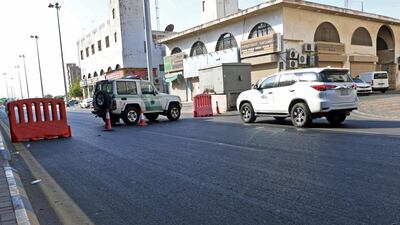Terrorist group ISIS has claimed responsibility for a bomb attack on a Remembrance Day service at a non-Muslim cemetery in the Saudi city of Jeddah on Wednesday that wounded at least two.
The blast, which the Saudi Ministry of Interior said injured a Greek official and a Saudi security guard, was aimed at European diplomats commemorating the end of the First World War.
A British citizen was also believed to have been hurt in the bombing.
A statement by the extremist group on its Telegram channels said ISIS fighters “planted an explosive device in … the cemetery in the city of Jeddah yesterday (Wednesday)”.
Diplomats from France, Greece, Italy, Britain and the United States were involved in the Armistice Day commemoration ceremony in the Red Sea port city, according to a joint statement from their embassies which condemned the “cowardly attack”.
The bomb triggered panic as it went off while the French consul was delivering a speech at the ceremony, said witness Nadia Chaaya.
“At the end of the speech we heard an explosion. We didn’t quite understand it at first, but we then realised that we were the target,” Chaaya told France’s BFMTV.
“We were panicking and feared there could be a second explosion. We left the cemetery ... and everyone went their separate ways.”
While condemning the “shameful” attack, the embassies of the countries involved in the commemoration lauded “brave Saudi first responders who assisted those at the scene”.
The Saudi embassy in The Hague was sprayed with more than 20 bullets on Thursday in an apparently unrelated attack.
The embassy confirmed none of its staff was hurt and said it had urged Saudi citizens in the Netherlands to “exercise caution”.
Dutch police arrested a 40-year-old suspect later in the day.
Wednesday’s bombing came less than a month after a guard at the French consulate in Jeddah was wounded by a knife-wielding extremist, amid fury over satirical cartoons of the Prophet Mohammed.
French President Emmanuel Macron has sought to assuage anger over the cartoons printed by the satirical magazine Charlie Hebdo.
The Charlie Hebdo cartoons were shown by French history teacher Samuel Paty to pupils in a class on free speech, leading to his beheading outside Paris on October 16 following an online campaign by parents angry over his choice of lesson material.

